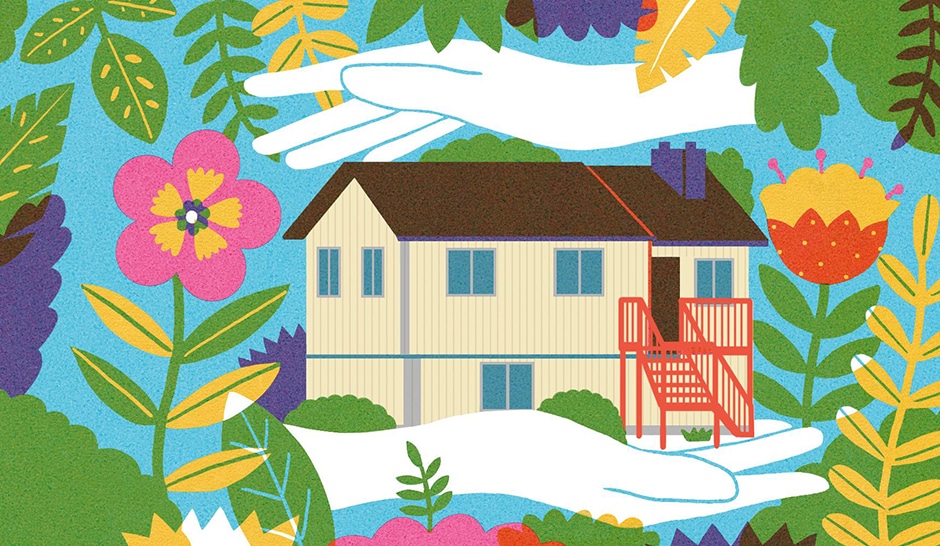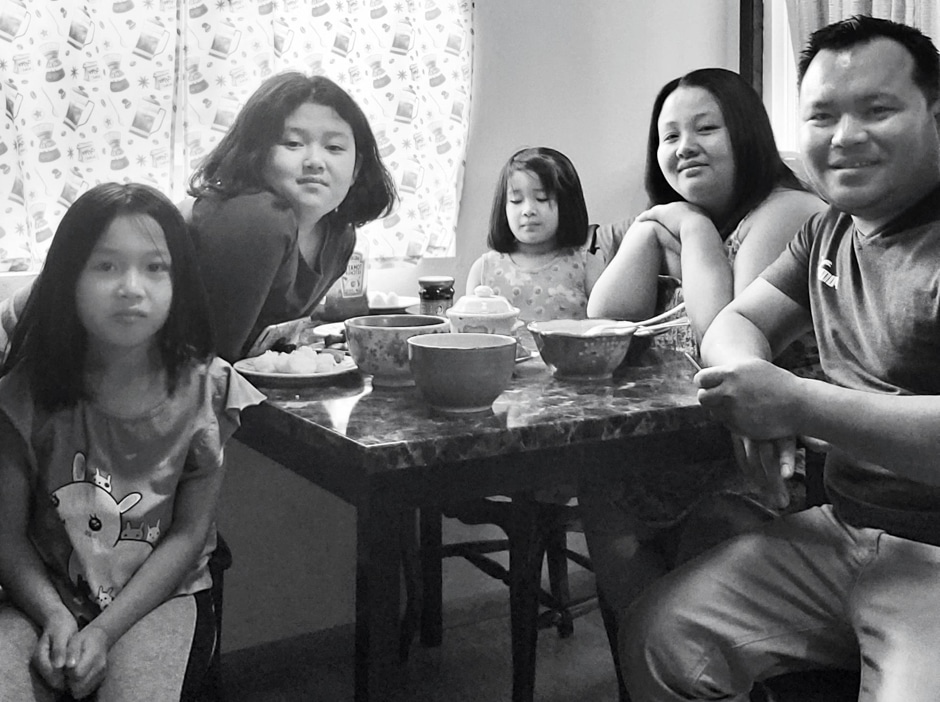What Home Means to Me: A Gathering Place
After leaving Thailand for a better life, a refugee finally found a home and filled it with family in Spokane.

When Saw Gary first got the key to his split-level ranch on a suburban street in Spokane, Washington, he couldn’t help but think of the framed image of a dilapidated bamboo shack he keeps in his office. The shack’s tarp roof is peeling off the rafters, and its floor is dirt. Located in a small village in Thailand, it’s the first home Saw ever knew. And it’s gone.
In 1999, when he was 12 years old, Saw and his family were ordered by Thai government officials to leave their house and go to Burma (modern-day Myanmar), where his parents, who are Karen (an ethnic minority in Myanmar), were born. They had come to Thailand years earlier to avoid persecution. When his parents returned to Burma with their nine children in tow, they sought refuge at a small camp established for displaced Karen, but camp leaders told them they were now “too Thai” to live there. With no other options, they returned to Thailand, only to discover that the house they lived in had been bulldozed away.
Saw and his older brother decided to try for a better life. “I was always so afraid when I was growing up in Thailand,” Saw says. “We never knew when someone would force us to leave. And we had nothing. I had to go to the lake to get water.” The brothers applied for asylum and, when Saw was 16, immigrated to the United States, eventually landing a small apartment designated for immigrants in St. Paul, Minnesota. “There was such a feeling of release and a sense of freedom,” Saw says. “Now we had a sink, a couch, a bed, and a stove… It was so nice to have a stove!”
Saw’s brother became his legal guardian, and Saw enrolled in his first year of high school. But what he gained in safety and a solid roof over his head, he lost in community. “In Thailand, I had friends I could talk to and hang out with. Here, I didn’t speak any English. I had no clue what the teachers were saying. I remember feeling very isolated and homesick.”
Now those feelings are gone. After meeting his wife, Lah Say, at college in Arizona and moving to Spokane to be near her family, he and Lah started their own family—Rachel, eight; Sarah, six; and Laura, four. For a while, they lived in an apartment, then a duplex, but they needed space and permanence. By sheer luck, they found a four-bedroom ranch next door to Lah’s brother and his wife. For the first time since leaving Thailand, Saw had a real home.

“Your home is not just where you keep your things but where you bake your memories into. It’s that beautiful collection of wonderfully ordinary things that make it feel extraordinary and unique to you.”
—Jonathan
“We have all our family pictures on the wall,” he says. “My kids have their own rooms. My mother-in-law has a garden in the backyard.” Saw spends weekends cooking Thai dishes or singing karaoke with his daughters. When the kids go to bed, he and Lah watch TV for a while. He found a church. He drives a minivan. In other words, his life is wonderfully ordinary.
What does home mean to him? “I feel like life has more meaning when you have a home,” Saw says. “I always had somewhere to live growing up, but every two or three years, we would have to rebuild everything. I don’t have to do that anymore. I think about how lucky I am every single day.”
By Keith Pandolfi | Illustration by Boyoun Kim | Photo courtesy of Saw Gary





